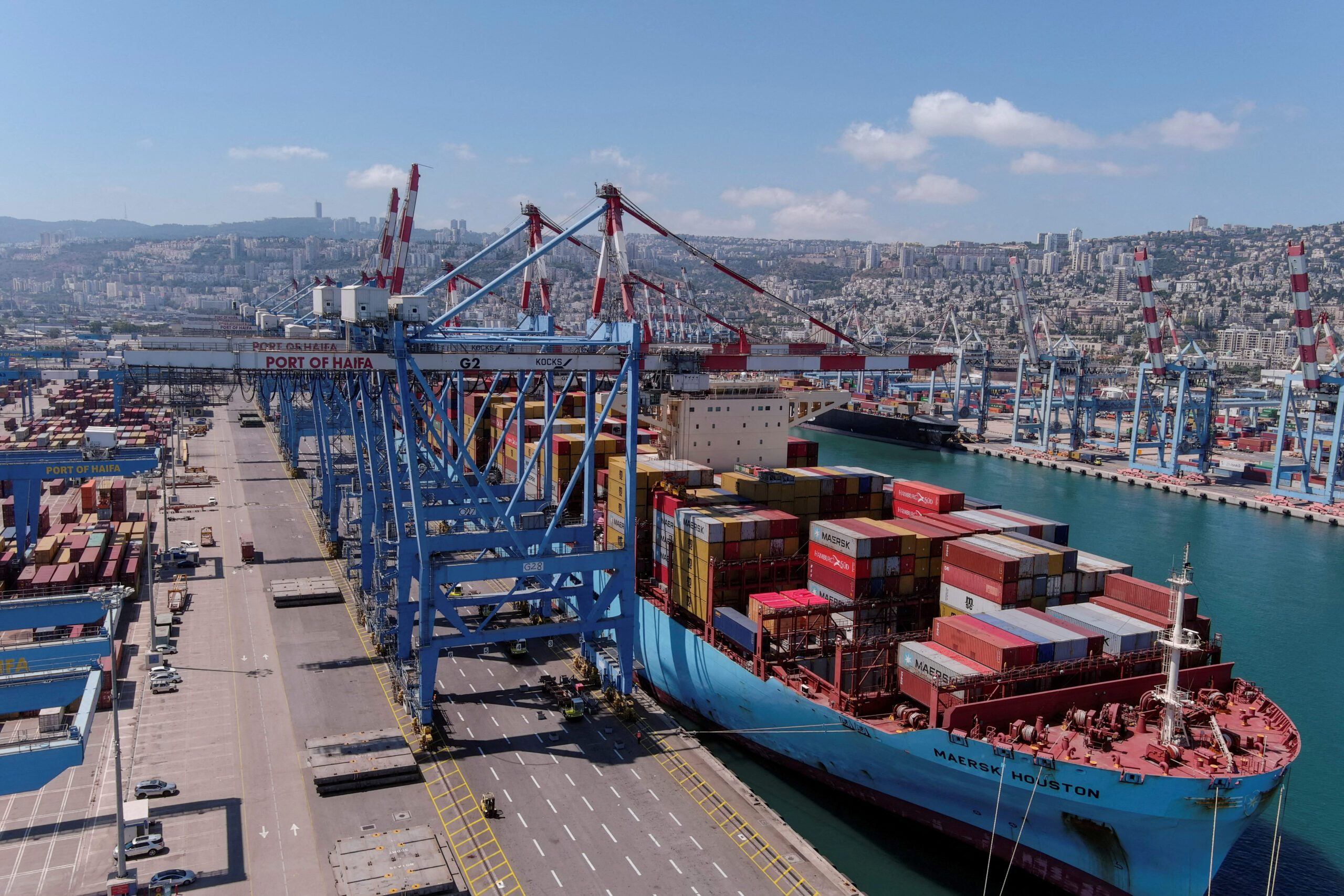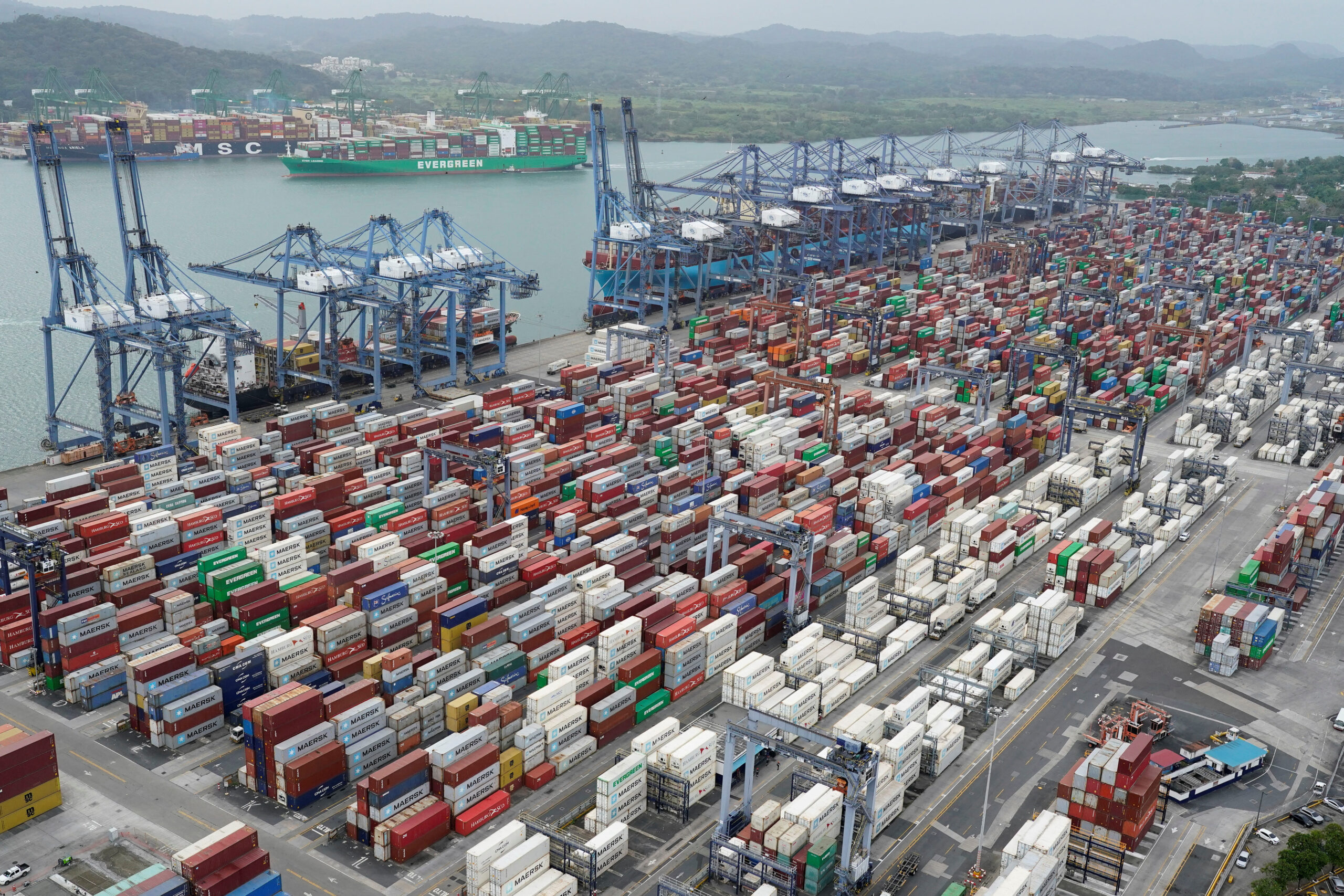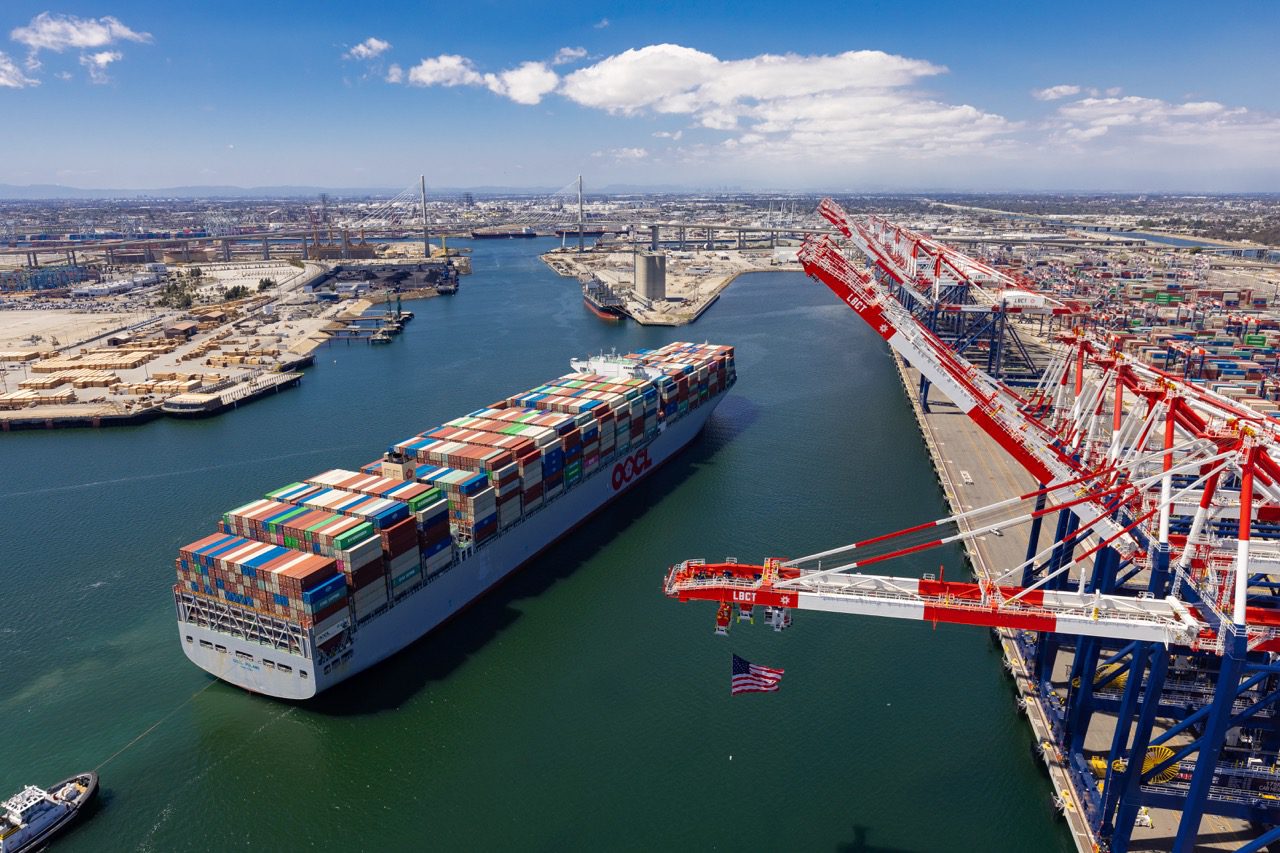By Jonathan Saul and Ari Rabinovitch
JERUSALEM, Oct 15 (Reuters) – The backlog of ships is growing at Israeli ports while operations continue at most terminals amid preparations by the military to launch a ground assault in the Hamas-controlled Gaza Strip, according to data and sources.
Israel has vowed to annihilate Hamas in retaliation for a rampage in which its fighters stormed through Israeli towns a week ago, shooting civilians and seizing scores of hostages in the worst attack on civilians in Israel’s history.
Israel has faced heavy rocket barrages including in the south of the country, which has prompted the closure of the smaller Ashkelon port, which is the nearest terminal to Gaza.
Ashdod port has imposed restrictions on the transport of hazardous materials which has meant slower transits.
The port said in its latest statement posted on its website that it continued to operate as normal “even under wartime,” adding that it was prepared to continue to supply Israel’s economy with everything that was needed “around the clock” to ensure the population did not experience shortages.
At least three cargo and dry bulk ships carrying cargo bound for Ashdod had stopped in waters nearby, with a further three vessels including an oil tanker and a container ship heading for the port, data from ship tracking and maritime analytics provider MarineTraffic showed on Sunday.
Around 13 ships – comprising cargo, container and dry bulk vessels – were currently moored inside Ashdodport, according to MarineTraffic data.
At least three laden dry bulk ships were waiting off Haifa in northern Israel, separate data showed. Haifa and Ashdod are Israel’s biggest and most vital ports.
The Port of Haifa, which handles multiple cargo segments including dry bulk goods, said on Sunday it was working continuously and also throughout the weekend.
“The activity has been reinforced to the maximum possible, within the operational and manpower limitations, in order to receive cargo of all types, including cargo that was diverted from the direction of Ashdod and unloaded at the Port of Haifa,” it said in a statement.
Leading container shipping line MSC said last week there were increased waiting times at Ashdod due to increased security checks and labor shortages and “circumstances are subject to change at very short notice” at Israeli ports.
Israel’s Economy Ministry said separately on Thursday there was a shortage on manpower making it harder to transport and replenish inventories due to higher consumption, although there was no shortage of supplies and urged people not to hoard food.
“There will be zero tolerance for price gouging,” the ministry said.
Wait times for ships docking in Israel have on average traditionally been much longer than in other ports. The government in recent years has been privatizing its ports and opening new ports in a bid to increase competition and efficiencies.
Marine war insurance rates have surged more than ten fold since the attacks last week and some underwriters were reviewing cover provisions for Ashdod although Haifa remained unaffected, industry sources said.
While Ashdod and Haifa ports account for just 0.4% of global container throughput, any expansion of hostilities beyond Israel’s border could introduce risks to vital shipping chokepoints in the region, online logistics platform Container xChange said.
“The Suez Canal, a critical waterway for various commercial vessels, including container ships, may face disruptions,” Container xChange CEO Christian Roeloffs said.
“Similarly, the Strait of Hormuz, a backbone for oil and gas shipping, could be affected. However, the extent of these effects will largely depend on the conflict’s expansion and duration.”
The Marshall Islands registry, one of the world’s top shipping flags, last week raised the security level for Israel’s ports and its territorial waters to their highest.
“Threat of collateral damage to merchant vessels has increased significantly,” the registry said in an advisory.
“Vessels with links to Israel or the United States may be under heightened threat of attack within Israeli territorial waters, the Arabian Gulf, Strait of Hormuz, Gulf of Oman and Red Sea areas.”
(Reporting by Jonathan Saul and Ari Rabinovitch in Jerusalem; editing by David Evans and Louise Heavens)
(c) Copyright Thomson Reuters 2023.

 Join The Club
Join The Club












